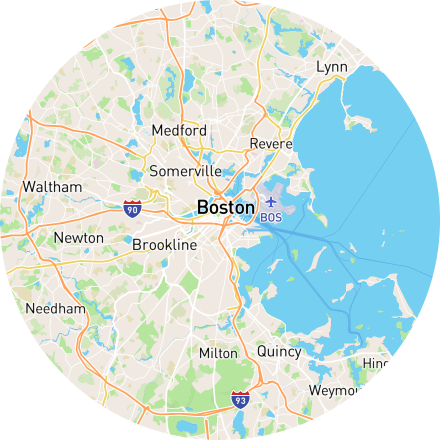Fair Housing Law and Predatory Lending
Fair Housing Law and Predatory Lending
What is Fair Housing?
Fair housing is a set of principles and laws that mandate equal access and opportunity in housing. Fair housing covers all housing-related activities, from search and application to amenities, management policies, terms and conditions plus termination of tenancy. Fair housing covers persons who are members of a protected class which are designated as groups of persons and their families that historically have experienced discrimination. In Massachusetts, those classes are race, religion, national origin, gender, disability, familial status, marital status, sexual orientation, public assistance (including rental vouchers), genetic information, and military status.
Are both private and publicly funded housing covered by fair housing?
Fair housing laws apply to both private and publicly housing. The private real estate market and all types of government-funded housing must be compliant. Fair housing laws are not restricted to rentals. Condos, co-ops, “rent-to-own” and single-family ownership units are covered as well.
Who must follow fair housing laws?
Property owners, developers, condo associations, and homeowner associations are covered parties under fair housing laws. Their employees, such as property managers, clerical staff, maintenance workers and all others, are responsible for performing their duties in a manner consistent with fair housing. Attorneys and real estate agents must act and advise their clients in a compliant manner. Other residents in the building, development or neighborhood can be held responsible under fair housing laws and regulations if their behavior is considered to be discriminatory. Developers, architects and contractors can be held liable under the accessible design and construction fair housing mandates for units built for persons with disabilities and their families.
What is predatory lending and how is it connected to fair housing?
Predatory lending is when borrowers are given loans or encouraged to get loans that come with unreasonable terms and conditions. Often, these lenders target members of fair housing protected classes such as elders and women, as well as racial and ethnic minorities.
What makes a loan predatory?
Generally predatory loans contain the following characteristics:
What are the signs that I am being steered towards a predatory loan?
Below is a short list of warning signs that you might be dealing with a predatory loan situation:
- High pressure marketing that is deceptive. Loans are approved without realistic consideration to the borrower’s actual ability to manage payments.
- Excessive fees built into the loans.
- Interest rates that exceed what a borrower’s credit would allow. Pressure to finance home improvements that the borrower does not need or want.
Does Metro Housing|Boston provide information on fair housing to persons trying to purchase a home?
Yes, you can contact the Metro Housing|Boston fair housing manager at (617) 425-6681 for technical assistance.
What can I do if I think that I am being offered or have been given a predatory loan?
You can file a fair housing complaint with any of these Fair Housing Resources:
MA Commission Against Discrimination
One Ashburton Place
Rm. 601
Boston, MA 02108
Phone: (617) 994-6000
TTY: (617) 994-6196
Cambridge Human Rights Commission
51 Inman Street, 2nd Floor
Cambridge, MA 02139
Phone: (617) 349-4396
TTY: (617) 492-0235
www.cambridgema.gov/HRC
HUD FHEO Region I
10 Causeway Street
Boston, MA 02222-1092
Phone: (617) 994-8300 or
(800) 827-5005
TTY: (617) 565-5453
Boston Fair Housing Commission
1 City Hall Plaza
Boston, MA 0220
Phone: (617) 635.4408
www.cityofboston.gov/civilrights
For help with fair housing matter please contact the Fair Housing Project by email at fairhousing@metrohousingboston.org or call (617) 425-6681.

Communities we serve
Metro Housing|Boston serves individuals and families, as well property owners, in 30 communities throughout Greater Boston.
- Arlington
- Bedford
- Belmont
- Boston
- Braintree
- Brookline
- Burlington
- Cambridge
- Chelsea
- Everett
- Lexington
- Lynn*
- Malden
- Medford
- Melrose
- Milton
- Newton
- North Reading
- Quincy
- Reading
- Revere
- Somerville
- Stoneham
- Wakefield
- Waltham
- Watertown
- Wilmington
- Winchester
- Winthrop
- Woburn
*Metro Housing|Boston does not administer RAFT, Voucher Programs, or HomeBASE assistance in Lynn. See Lynn Housing Authority.
*In addition to the 30 communities listed above, Metro Housing|Boston administers rental voucher programs in Holbrook, Randolph, and Weymouth. If you are specifically seeking RAFT assistance in those communities, you must apply instead to NeighborWorks. (https://nhsmass.org/).